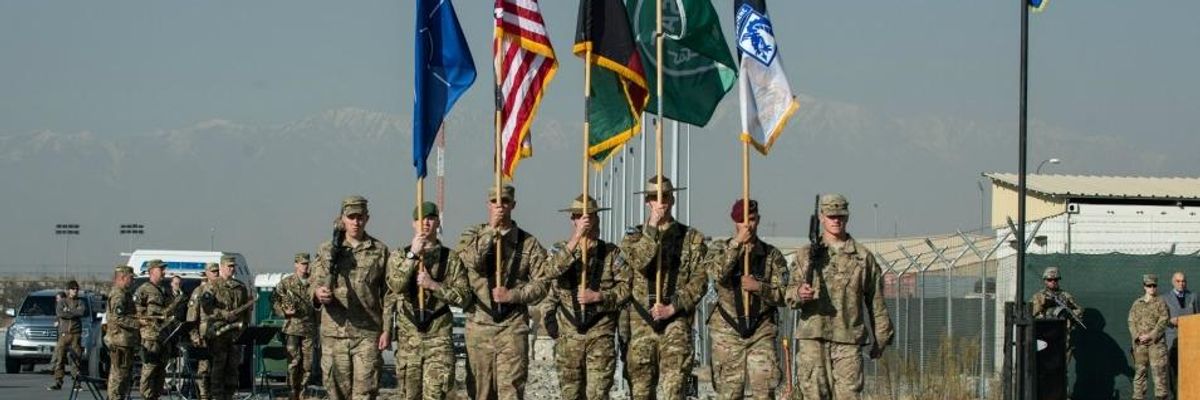Despite the December 28th "official" end of the U.S.-led war in Afghanistan, a new Rolling Stone article provides more proof that armed combat is nowhere near over: the Obama administration still considers the country to be an "area of active hostilities" and therefore does not impose more stringent standards aimed at limiting civilian deaths in drone strikes.
At issue are the Presidential Policy Guidelines (pdf), passed in May 2013 in response to widespread concerns about the killing and wounding of non-combatants by U.S. drone strikes. The new guidelines impose the requirement that "before lethal action may be taken," U.S. forces are required to attain "near certainty that non-combatants will not be injured or killed." It is impossible to verify the impact of this reform on civilian deaths and injuries, because U.S. drone attacks are shrouded in near total secrecy.
However, an unnamed senior administration official told Rolling Stone journalist John Knefel that the Presidential Policy Guidelines do not apply to Afghanistan. "Afghanistan will continue to be considered an 'area of active hostilities' in 2015," said the official. "The PPG does not apply to areas of active hostilities."
This is not the first time President Obama has played fast and loose with its own drone war reforms. In October 2014, it was revealed that the Obama administration holds that the reforms also do not apply to the ongoing wars in Iraq and Syria, because they are also deemed to be "areas of active hostilities."
According to Knefel, "That perplexing distinction - that formal combat operations are over but that the U.S. still remains in an armed conflict - in many ways exemplifies the lasting legacy of Obama's foreign policy. From Yemen to Pakistan to Iraq and Syria and Afghanistan, the administration has consistently downplayed its actions - some acknowledged and some covert - saying that the wars are (almost) over while retaining virtually all the powers of a country at war."
